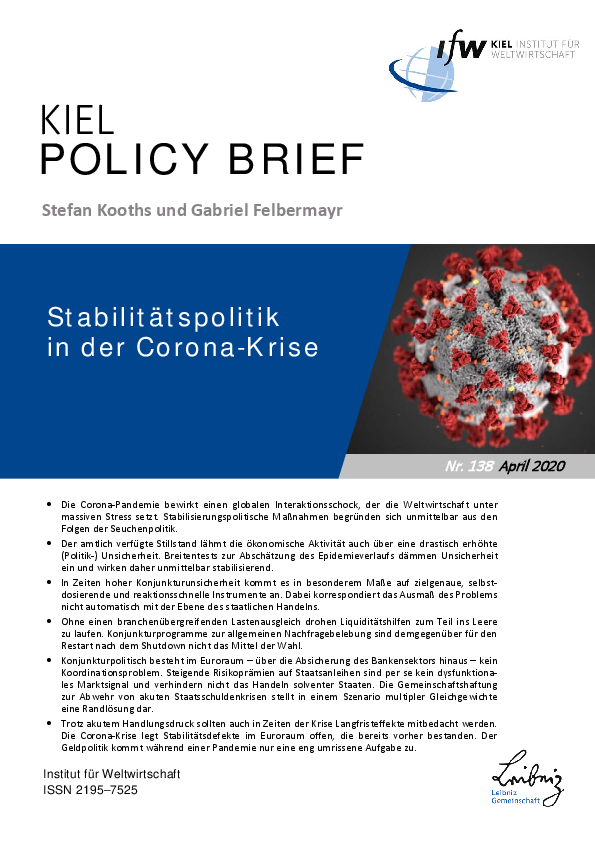Authors
Publication Date
Key Words
Related Topics
Europe
Business Cycle
Economic & Financial Crises
Fiscal Policy & National Budgets
The corona pandemic causes a global interaction shock that puts the world economy under massive stress. Stabilization policy measures are directly justified by the consequences of the epidemic policy. The authors emphasize that in times of high economic uncertainty, it is particularly important to have precisely targeted, self-dosing and fast-reacting instruments. They consider a cross-sectoral burden sharing as necessary to ensure that liquidity support is effective. By contrast, economic stimulus packages to boost demand in general are not the means of choice for the restart after the shutdown. At the European Community level, safeguarding the banking sector is the best justifiable contribution to stabilization. According to the authors, rising risk premiums on government bonds are not per se a dysfunctional market signal and do not prevent solvent states from acting. In their view, joint liability to avert acute sovereign debt crises is only a marginal solution in a scenario of multiple equilibria. They recommend that, despite acute pressure to act, long-term effects should also be considered in times of crisis. This is because the corona crisis reveals stability defects in the euro area that already existed before the crisis.








